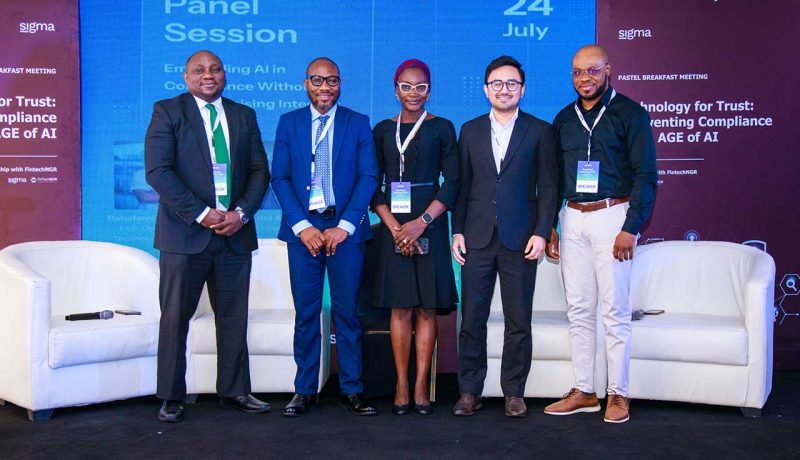
Financial institutions tasked on fraud prevention tools, tech upgrade
Financial institutions have been urged to use real-time tools that can match the scale and speed of digital financial transactions in Nigeria and across the continent to combat fraud.
This was the submission at the second edition of its Breakfast Meeting organised by Pastel, an AI-powered enterprise solution provider, in partnership with FintechNGR.
According to the 2024 Nigeria Inter-Bank Settlement System (NIBSS) Fraud Report, Nigerian banks lost N52.26 billion to fraud last year, a 196 per cent increase from the previous year.
The high-level gathering brought together senior banking executives, regulators, and fintech operators, who explored the growing role of AI and automation in fraud prevention, regulatory reporting, and operational resilience.
This followed the Central Bank of Nigeria (CBN)’s recent draft directive introducing Baseline Standards for Automated Anti-Money Laundering (AML) Solutions, a move that emphasises the urgency for institutions to adopt proactive compliance systems.
The event referenced a report which showed Africa loses $50 billion yearly to illicit financial flows, and among the 24 countries on the FATF greylist, 12 of which are in Africa.
According to the analysts, this situation risks increased scrutiny of cross-border transactions, tighter due diligence requirements, and potential impacts on investment and trade opportunities.
The Chief Executive Officer of Pastel, Abuzar Royesh, said that beyond the financial losses, such reputational effects underline the urgency for strengthened, tech-enabled compliance systems that promote transparency and build confidence in Africa’s financial ecosystem.
He emphasised the company’s commitment to designing technology that reflects Africa’s unique operational and regulatory challenges.
At the heart of the event was Sigma, Pastel’s flagship AI-powered solution, already being deployed by a growing number of Nigerian institutions. Built using local regulatory models and datasets,
Royesh said Sigma is not a Western system retrofitted for Africa but purpose-built using African data, CBN standards, and risk models from across the continent.
The Chief Revenue Officer at Pastel, Anthony Amodu, addressed the inefficiencies of traditional compliance systems.
“Manual reporting and fragmented monitoring can no longer keep pace with today’s threats. Sigma offers the speed, clarity, and accountability that C-suite leaders now require—not just to stay compliant, but to stay competitive,” he said.
In his keynote address, the President of FintechNGR and Chief Executive Officer of Zest Payment Limited, Stanley Jacob, emphasised the global momentum around AI for compliance.
Jacob, who was represented by Seun Folorunsho, stressed that non-compliance is extremely expensive as financial institutions around the world are spending over $200 billion yearly on AI tools for regulatory assurance, noting that Nigeria must move in step with that reality.
The Chief Compliance Officer at Optimus Bank, Wede Thompson, who led a fireside chat on regulation and user experience, emphasised that regulation is ultimately about trust.
He noted that if trust must be built using artificial intelligence, banks, fintechs, and regulators must work in lockstep with the end customer in mind.
The Executive Vice President, Operations and Technology, Interswitch, Babafemi Ogungbamila, during a panel session, stressed the need for explainability, accountability and regulatory alignment in AI-powered systems.
The Chief Finance Officer of Coronation Merchant Bank, Arini Awotunde, emphasised that Artificial intelligence should enhance and not just automate compliance, noting that companies must ensure innovation and ethics move together.
The Head of People and Operations at Pastel, Yeyetunde Caxton-Martins, reaffirmed the company’s commitment to industry collaboration and its belief in building intelligent compliance infrastructure, adding that Sigma is how it helpsinstitutions move from burden to advantage.






No Comment! Be the first one.